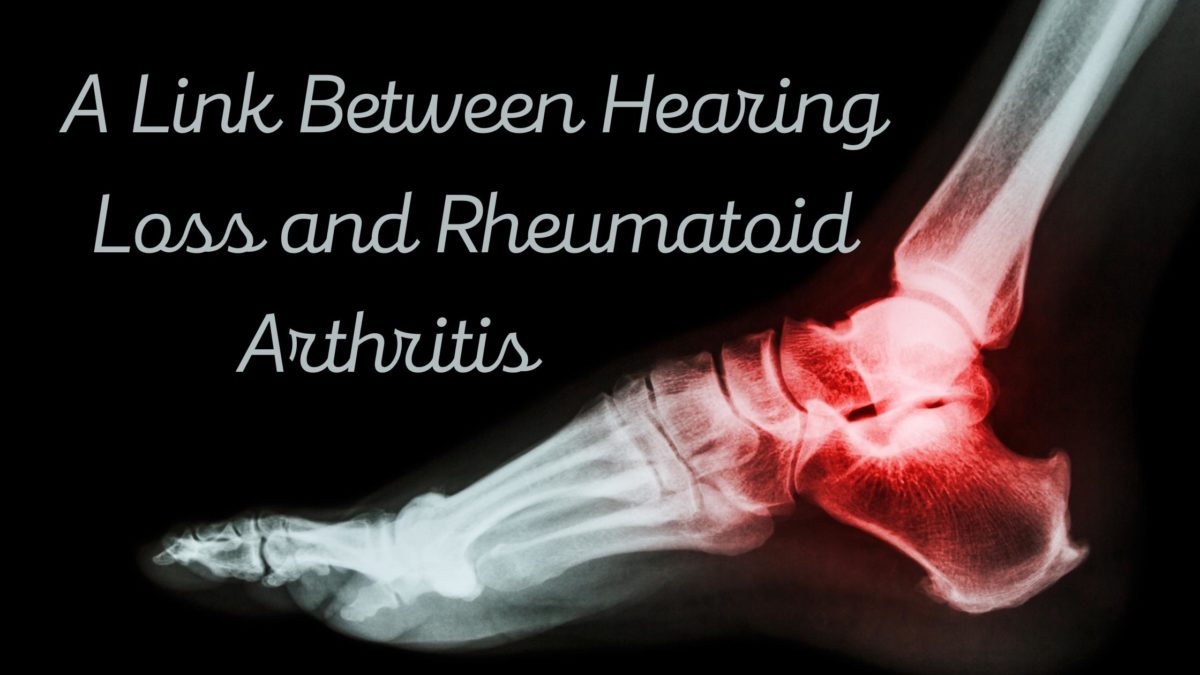Hearing loss has been correlated with a wide range of health conditions. Not only are people with hearing loss more likely to develop cardiovascular disease and diabetes, but they are also more likely to experience an accidental injury. When you hear about these relationships, it is important to remember that hearing loss does not necessarily cause the other factor in question. In some cases, that is most likely how it works, as in the case of hearing loss and dementia. In other cases, it seems like another condition is causing hearing loss, such as high cholesterol.
In still more cases, the relationship seems to be caused by a third factor or some unknown connection. When it comes to rheumatoid arthritis, we don’t know which type of connection is in play. It seems most likely that a third factor is causing people who have rheumatoid arthritis to have higher rates of hearing loss, but it is also possible that the arthritis is the direct cause. While researchers continue to investigate the nature of this connection, let’s take a look at a survey study that collected data from a wide range of hearing loss cases.
Rheumatoid Arthritis
Affecting about one percent of the population, rheumatoid arthritis is a chronic, inflammatory disease. Primarily affecting the joints, this condition can also affect the heart, lungs, skin, and eyes. What happens in the body of a person with rheumatoid arthritis is that the body mistakenly attacks its own tissues. Rather than the wear-and-tear effect of other types of arthritis, rheumatoid arthritis affects the lining of the joints, causing swelling, bone erosion, and even physical deformity. This condition is not limited to older age as in other forms of arthritis. On the contrary, younger people can have rheumatoid arthritis, as well.
Connection with Hearing Loss
Those who have rheumatoid arthritis seem to be more likely to have at least two types of hearing loss: sensorineural and conductive. The first type of hearing loss, sensorineural, occurs when something damages the fragile features of the inner ear, including the tiny hairlike organelles called stereocilia. The second type of hearing loss, conductive, occurs when something damages, injures, or otherwise limits the functioning of the middle ear.
A person can also have mixed hearing loss with both of these types. When it comes to the connection with hearing loss, it is possible that rheumatoid arthritis is directly causing higher rates through this inflammatory effect. In this case, it is possible that it might cause damage to the stereocilia and lead to sensorineural hearing loss. On the other hand, it is possible that the arthritis might cause inflammation in the “joints” between tiny bones in the middle ear. If these bones did not connect in a way that allowed soundwaves to travel to the cochlea, then conductive hearing loss might occur. In addition to these two possibilities, it is possible that a third factor is connecting the two. One likely suspect is a medication for rheumatoid arthritis that might cause hearing loss as a side effect. Other intervening factors are as mysterious as the causes of autoimmune conditions, more generally. This category of physical pathology has received increasing research attention, yet concrete understandings of the causes of conditions such as rheumatoid arthritis remain to be found.
If you or someone you love has a personal experience with rheumatoid arthritis or hearing loss, it is important to take action in the direction of treatment. With the right medical support, you can relieve some of the symptoms of these conditions. In the case of hearing loss, while current medical technology is not able to restore the stereocilia once they have been damaged, hearing aids function as a treatment for the resulting loss of sonic awareness.
By raising the volume on those lost frequencies, many people with hearing loss are able to regain understanding of those sounds. The important step you can take is to engage with a hearing health professional in pursuit of that treatment. Beginning with a hearing test, you can embark on the road toward better hearing ability, communication, and potentially reduce the likelihood of some of the other health concerns that are correlated with hearing loss, as well.

